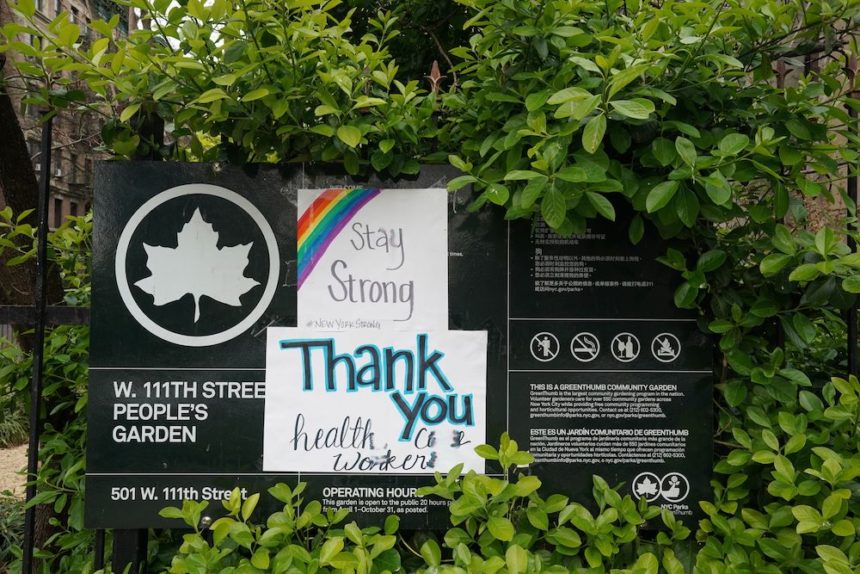Before we wade into the muck, let’s pause for a moment and celebrate poetry, since April is National Poetry Month. In honor of William Wordsworth’s 250th birthday today, here is a beautifully animated rendition of his poem “Daffodils,” read by Dave Matthews.
Today’s Coronavirus Briefing is 1,471 words and will take you six minutes to read. Register for the newsletter here.
Just the Hits
- After two days with fewer deaths, albeit over the weekend when reporting isn’t as accurate, officials in New York, New Jersey and Connecticut —three coronavirus hotspots — say the apex may be near.
- China reported no coronavirus deaths today — the first time since it started publishing daily figures in January.
- U.K. Prime Minister Boris Johnson tested positive for COVID-19 11 days ago, he was admitted to the hospital Sunday night, and is now in intensive care.
- The combination of stresses brought on by the pandemic and restrictions on movement, have dramatically increased the number of women and girls facing abuse, in almost all countries.
- Today is National Beer Day in the U.S., which commemorates legislation signed in 1933 by President Franklin Roosevelt legalizing beer. So we got that going for us.
- Tomorrow is Passover. Here’s some advice for hosting a virtual Seder.
The takeaway:
It’s bad news with a side of hope. Have a beer. Fill out the 2020 Census.
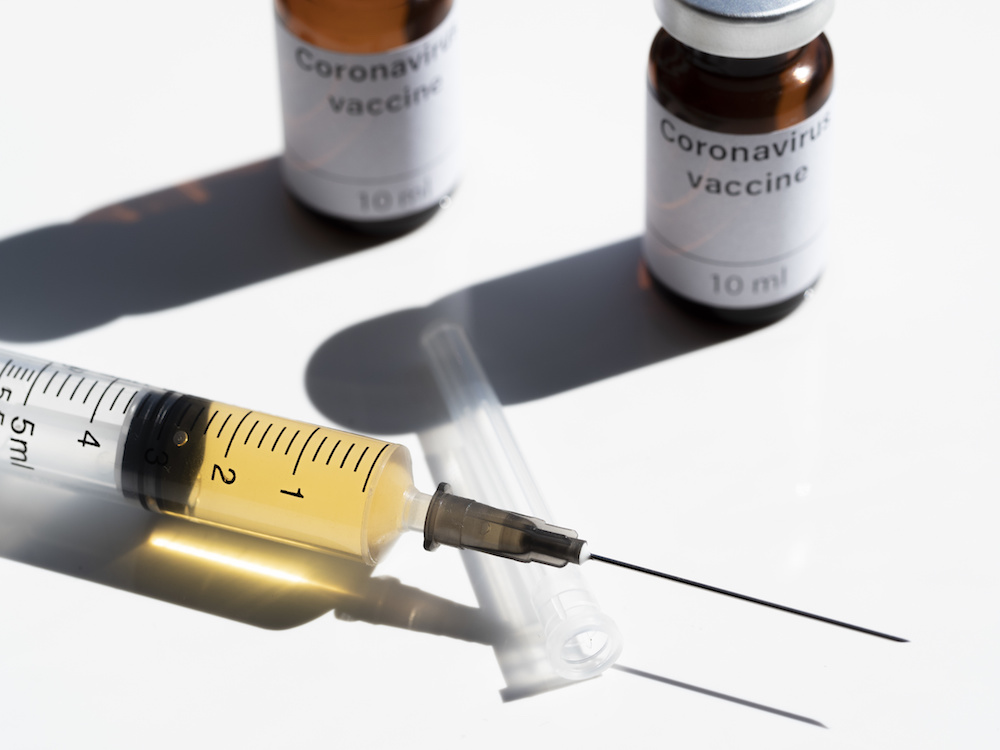
Vaccines
Approximately 35 companies and academic institutions are racing to create vaccines and cures for coronavirus. Here’s how a few of them are doing.
- In Hematology Advisor, Vicki Moore reports that a research team at the Icahn School of Medicine at Mount Sinai in New York, have identified a serological method (study of blood serum, notably the response of the immune system to pathogens or introduced substances) to detect seroconversion (the period of time in which antibodies first become detectable) on those infected with COVID-19.
- The biotech firm Moderna, together with China’s CanSino Biologics, have launched small clinical trials to test their vaccine’s safety and potential to trigger immune responses. Healthy volunteers, aged 18-55, are now participating in the Phase 1 study.
- Johnson & Johnson said it could have a vaccine by early 2021. The company is planning to start clinical trials in September, and has begun investing in a rapid production capability to make the vaccine at scale should it prove safe and effective.
- A potential vaccine was created in a University of Pittsburgh lab. Scientists at the lab announced that when tested in mice, the vaccine produced antibodies that could potentially fight off the virus. While human testing typically requires at least a year, the researchers are working with federal agencies to speed the process.
The takeaway:
If we can maintain our social distancing, flatten the curve and find a cure, we should be able to get through this with enough of our bodies and minds intact to witness the creation of a vaccine.
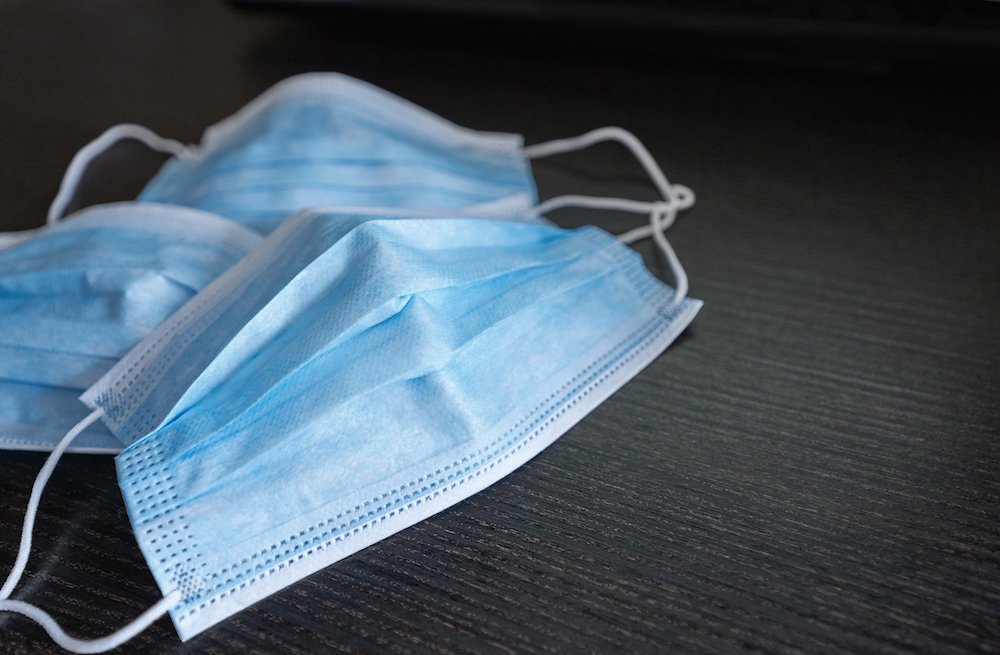
Great. But what about price gouging?
First there were those morons, brothers Matt and Noah Calvin, who bought up all of the hand sanitizer they could find, intending to resell them online at a profit. But really, that was just a precursor to a larger, more insidious version of price gouging. Every state is now fighting to get the medical equipment and personal protective gear it needs; collectively, they’re in competition with the federal government, which is trying to get the same supplies in order to control where the stockpile goes, and all of them are in competition with FEMA, which is also stockpiling. All of it, driving up prices. “It’s like being on eBay with 50 other states, bidding on a ventilator,” said New York Governor Andrew Cuomo.
- Danielle Brown reports for McKnight’s Long-Term Care News that U.S. Department of Justice investigators collected more than 598,000 medical grade gloves, 192,000 N95 respirator masks and 130,000 surgical masks, procedure masks, N100 masks, surgical gowns, disinfectant towels, particulate filters, bottles of hand sanitizer and bottles of spray disinfectant from hoarders. The supplies are being redistributed to health departments in New York and New Jersey.
- MM&M’s Alison Kanski reports on the dozen pharma companies working on COVID-19 treatments and vaccines. Potential pricing for the drugs is already causing concern. It remains to be seen whether drug companies price them at a level that doesn’t threaten access or post undue strain on governments’ financial resources, or remain focused on maximizing profits.
- The New York Times reports that the hybrid system of distribution of ventilators and protective gear — divided between the federal government, local officials and private healthcare companies — has led to a chaotic race to procure supplies. It has also drawn fraudsters looking to hoard items and resell the equipment at a steep price. A number of F.B.I. investigations are already underway.
- According to ProPublica, the shortage of key medical equipment has forced New York State to pay 20 cents for gloves that normally cost less than a nickel and as much as $7.50 each for masks — about 15 times the usual price. Although New York’s attorney general has denounced excessive prices, and ordered merchants to stop overcharging for hand sanitizers and disinfectant sprays, state laws against price gouging generally don’t apply to government purchases.
The takeaway:
Every step that researchers, scientists, doctors, and people staying home take to stop the pandemic, the world falls three steps back, thanks to pandemonium politicking, rapacious corruption, and out-and-out greed.
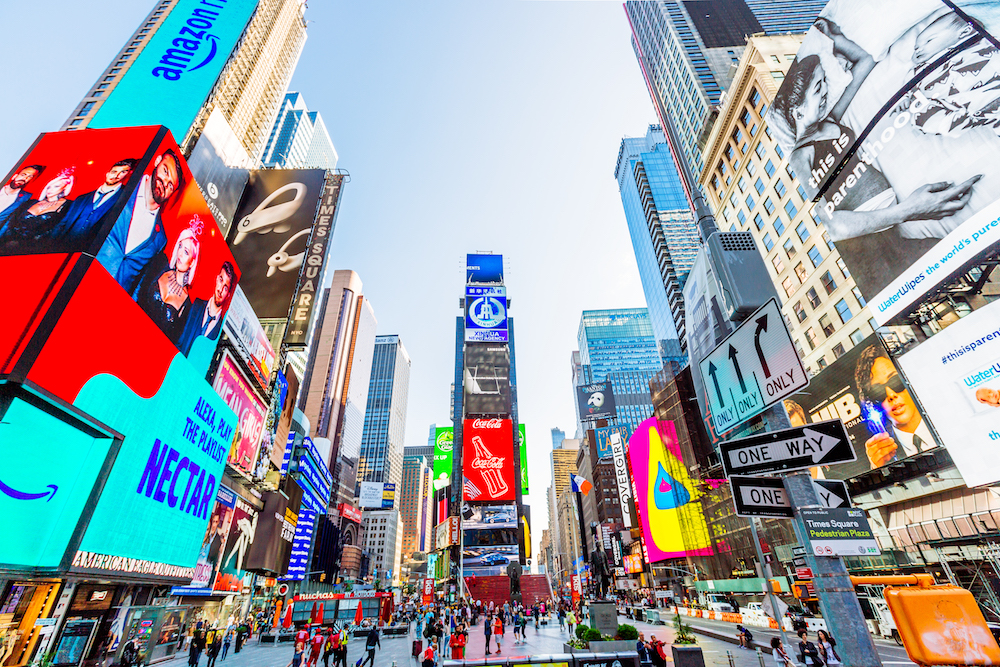
Tasteful advertising
Companies that spent big on advertising before the pandemic have hit the brakes. A new survey from Advertiser Perceptions shows that one-third of advertisers have canceled at least one campaign before it started, with 45% of respondents saying they pulled a campaign in progress, and 49% delaying a campaign. But many are pivoting their campaigns to help fight the virus. A dark horse to emerge as a resourceful face of the pandemic? Influencers.
- Acast’s new Staycast campaign urges people to stay at home during the coronavirus pandemic.
- Bacardi’s #RaiseYourSpirits initiative helps independent bars and bartenders in the U.K. by delivering premium cocktails to their customers.
- Simplehuman, which has seen a surge in demand for its touch-free products, is partnering with influencers and celebrities to help stop the spread of COVID-19.
- Speaking of influencers, they probably aren’t the first people you’d turn to in a crisis, but influencer marketing platform SocialPubli is making it work. The pro-bono initiative connects nonprofit organizations with clients to help raise awareness about COVID-19. So far, the company’s influencers have published 2,700 posts across TikTok, Instagram Stories and Twitter, reaching more than five million social media users.
The Takeaway:
The best advertising right now, is no advertising. Or pivoting advertising to focus on COVID-19. Or getting those with lots of followers to spread the word to stop the spread.
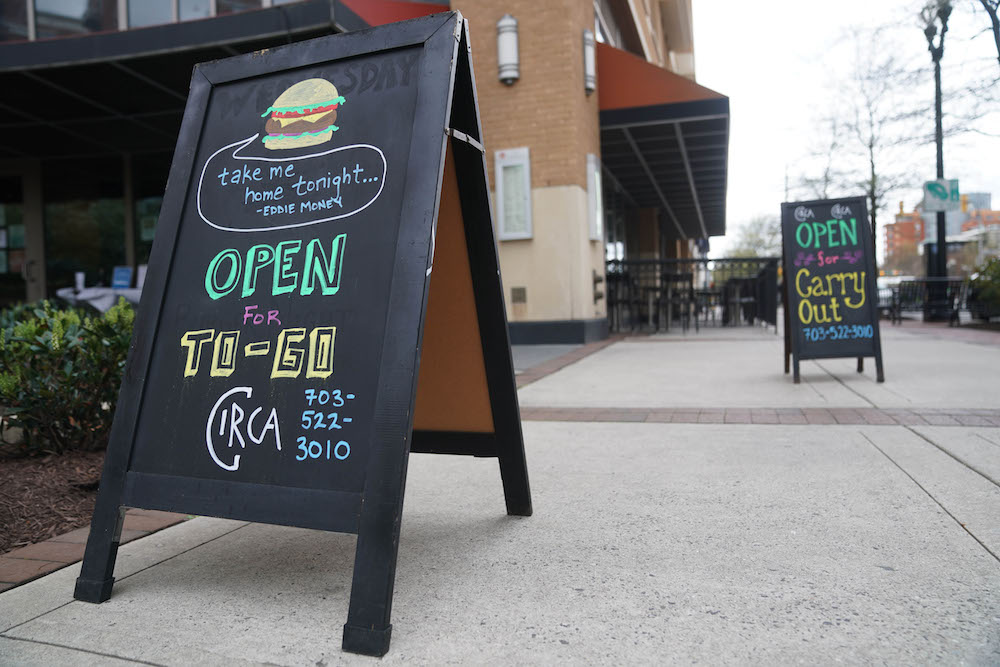
Food news
What do chefs who love their staff, celebrities who miss their favorite restaurants and anyone who misses their Negroni do during a crisis?
- US Foods, in partnership with Feeding America and local charitable organizations across the country, has donated $2.5 million to date, in food and supplies for COVID-19 hunger relief. The company has also teamed up with World Central Kitchen, the nonprofit founded by Chef José Andrés, to deliver food and supplies across California, Arkansas and Washington, DC.
- Andrés has also teamed up with Marcus Samuelsson, whose Miami outpost of Red Rooster was set to open before the pandemic hit. For the past week and a half, the restaurant has been offering packaged meals for workers laid off from Miami’s food and restaurant industry.
- Tyler Perry left a $21,000 tip for the staff at his favorite Atlanta restaurant while getting takeout. This, after creating the #HesGotTheWholeWorldChallenge to raise COVID-19 awareness. You may not love his movies, but you have to love his humanity.
- Here’s an useful list of food delivery companies who are taking new customers and don’t anticipate serious shipping delays.
- Of course, you’ll want a drink to go with all that food and you’re in luck. A handful of states across the U.S. have relaxed their liquor laws, allowing restaurants to include alcohol with their deliveries and pick-ups and bars to offer cocktails to-go. Cheers!
The Takeaway:
It’s unclear when food hoarding will stop, so skip the supermarket and support your favorite restaurant, visit your farmers at the greenmarket, and say “what’s up” to your beloved cocktailian selling drinks out the window of the corner bar.
Tunes for Tuesday
And now, some soothing sounds.
- Tuesday’s Gone, Lynyrd Skynyrd
- Sweet Tuesday Morning, Badfinger
- Ruby Tuesday, The Rolling Stones
See you tomorrow for more bad news, the good where we can find it, more music and more poetry.

